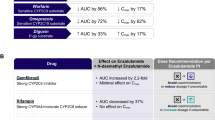Abstract
Objective. We conducted a phase II multicenter trial of perillyl alcohol in patients with advanced hormone refractory prostate cancer (HRPC). The primary endpoint was to evaluate the 6-month progression-free survival given the potential cytostatic nature of the drug. Secondary objectives included assessing acute and chronic toxicities, as well as measuring objective response rates. Methods. Patients with metastatic androgen-independent prostate cancer that failed at least one prior chemotherapeutic or experimental regimen were eligible. Perillyl alcohol was administered orally at 1200 mg/m2/dose four times daily and continued until disease progression or development of unacceptable toxicity. Results. Fifteen patients were eligible. Six patients received less than one cycle (4 weeks) of drug, four of which stopped because of drug intolerance. Only six patients received more than two cycles of therapy and were considered evaluable for response. Main toxicity included grade 1–2 gastrointestinal intolerance (nausea/vomiting in 60% of the patients) and fatigue (47%). One patient developed a grade 4 hypokalemia that was felt likely attributable to the drug. No objective responses were seen. All patients either progressed or withdrew from the study secondary to drug intolerance before the 6-month time period. Conclusion. Perillyl alcohol administered at this dose and formulation did not have any objective clinical activity in this patient population.
Similar content being viewed by others
References
Jemal A, Thomas A, Murray T, Thun M: Cancer statistics. CA Cancer J Clin 52(1): 23–47, 2002
Scher HI, Kelly WK: Flutamide withdrawal syndrome: its impact on clinical trials in hormone-refractory prostate cancer. J Clin Oncol 11(8): 1566–1572, 1993
Tannock IF, Osoba D, Stockler MR, Ernst DS, Neville AJ, Moore MJ, Armitage GR, Wilson JJ, Venner PM, Coppin CM, Murphy KC: Chemotherapy with mitoxantrone plus prednisone or prednisone alone for symptomatic hormone-resistant prostate cancer: a Canadian randomized trial with palliative endpoints. J Clin Oncol 14: 1756–1764, 1996
Kantoff PW, Halabi S, Conaway M, Picus J, Kirshner J, Hars V, Trump D, Winer EP, Vogelzang NJ: Hydrocortisone with or without mitoxantrone in men with hormone-refractory prostate cancer: results of the cancer and leukemia group B 9182 study. J Clin Oncol 17: 2506–2513, 1999
Crowell PL, Gould MN: Chemoprevention of mammary cancer by monoterpenoids. Crit Rev Oncogen 5: 1–22, 1994
Crowell PL, Chang RR, Ren Z, Elson CE, Gould MN: Selective inhibition of isoprenylation of 21–26 kDa proteins by the anticarcinogen d-limonene and its metabolites. J Biol Chem 266: 17679–17685, 1991
Moul JW, Fridrichs PA, Lance RS, Theune SM, Chang EH: Infrequent ras oncogene mutations in human prostate cancer. Prostate 20: 327–338, 1992
Viola MV, Fromowitz F, Oravez S, Deb S, Finkel G, Londy J, Hand P, Thor A, Sclom J: Expression of ras oncogene p21 in prostate cancer. N Eng J Med 314: 133–137, 1986
Voeller HJ, Wilding G, Gelmann EP: V-ras H expression confers hormone-independent in-vitro growth to LNCaP prostate carcinoma cells. Mol Endocrinol 5: 209–216, 1991
Jirtle RL, Haag JD, Ariazi EA, Gould MN: Increased levels of M6P-IGF-II receptor and TGF 1 levels during monoterpene-induced regression of mammary tumors. Cancer Res 53: 3849–3852, 1993
Wilding G, Knabbe C, Zugmeier G, Gelmann EP: Differential effects of TGF on human prostate cancer cells in vitro. Mol Cell Endocrinol 62: 79–87, 1989
Shi W, Gould MN: The anticancer monoterpene perillyl alcohol causes a decrease in cellular cyclin D1 levels contributing to an early G1 arrest in mammary cells. Proc Annu Meet Am Assoc Cancer Res 38: 263, 1997
Ripple GH, Gould M, Stewart J, Tutsch K, Arzoomanian R, Alberti D, Feierabend C, Pomplun M, Wilding G, Bailey H: Phase I clinical trial of perillyl alcohol administered daily. Clin Cancer Res 4: 1159–1164, 1998
Hudes GR, Szarka CE, Adams A, Ranganathan S, McCauley RA, Weiner LM, Langer CJ, Litwin S, Yeslow G, Halberr T, Qian M, Gallo JM: Phase I pharmacokinetic trial of perillyl alcohol (NSC 641066) in patients with refractory solid malignancies. Clin Cancer Res 6: 3071–3080, 2000
Ripple GH, Gould M, Arzoomanian R, Alberti D, Feierabend C, Simon K, Binger K, Tutsch K, Pomplun M, Wahamaki A, Marnocha R, Wilding G, Bailey H: Phase I clinical and pharmacokinetic study of perillyl alcohol administered four times a day. Clin Cancer Res 60: 390–396, 2000
Bailey HH, Levy D, Harris LS, Schink JC, Foss F, Beatty P, Wadler S: A phase II trial of daily perillyl alcohol in patients with advanced ovarian cancer: Eastern Cooperative Oncology Group Study E2E96. Gynecol Oncol 85: 464–468, 2002
Author information
Authors and Affiliations
Rights and permissions
About this article
Cite this article
Liu, G., Oettel, K., Bailey, H. et al. Phase II trial of perillyl alcohol (NSC 641066) administered daily in patients with metastatic androgen independent prostate cancer. Invest New Drugs 21, 367–372 (2003). https://doi.org/10.1023/A:1025437115182
Issue Date:
DOI: https://doi.org/10.1023/A:1025437115182




